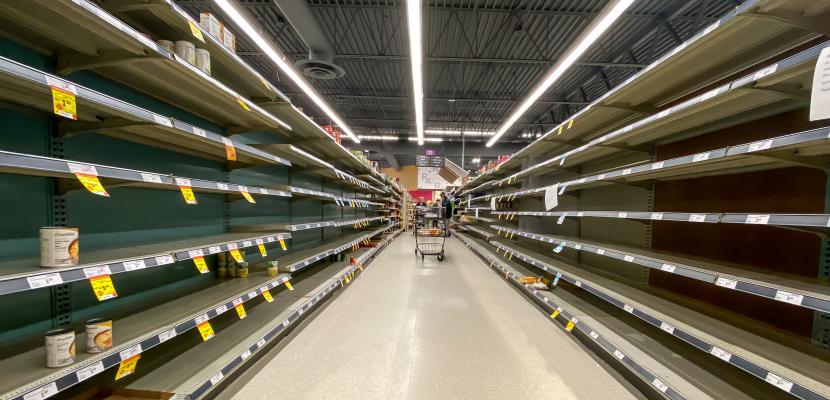
Dr Belinda Barton is an Assistant Professor of Marketing at the Bond Business School.
‘Fear Of Missing Out’, or FOMO, isn’t something you’d normally associate with toilet paper or baked beans. But Covid has broken down so many barriers that a feeling once linked to festivals and overseas trips has become a driving force in the way we shop.
Often throughout the pandemic those shots of empty shelves were caused less by supply chain slip ups than they were by worried people giving in to their deepest fears.
Our research into how consumers respond to scarcity showed that depending on the type of product, a sense of scarcity – that only a limited number of an item or experience is available, or for a limited time – creates different emotions and different buying actions.
When it comes to utilitarian products like toilet paper, dried pasta and tinned foods fear and uncertainty of what’s to come are what drives our purchasing decisions.
Seeing empty shelves day after day in the media during the height of the Covid19 pandemic made us fear what could come next. It can also make paranoia creep in - when shelves are empty we think there is something else to come, and that the people around us know what that is. We decide we need to protect ourselves from whatever that is, so we follow the actions of those around us assuming, mostly incorrectly, that they know more than we do. That’s the FOMO kicking in.
It's a tool marketers have been using for decades. Scarcity can be an incredibly strong driver of consumer behaviour, particularly when applied to certain types of experiences and products.
Take luxury products, like handbags and for example. The high price and often limited styles on offer are seen as a marker of uniqueness, the fact they are scarce is a boost to our status.
But scarcity of utilitarian goods, things we perceive as necessary to survive, sparks very different thought processes and emotions. They might lead to the same outcome – purchasing a product or experience – but why we make the decision to buy comes from a different place.
And this can create even bigger problems. When lack of supply is a factor in the scarcity of utilitarian products our brains tell us to buy even more. We use other people’s behaviour as markers of information, and we use these as inputs to make our own decisions.
It’s why we saw such huge rushes on basic items like toilet paper and canned foods during the pandemic. Consumers had FOMO from all the reports of empty shelves, so when they did find core items available many people bought much more than they needed, exacerbating an already challenging situation.
What began as a genuine supply chain issue quickly became a FOMO-driven purchasing flurry.
After the floods, we saw similar issues with products including lettuce with scarcity driving high demand and even higher prices. It’s hard not to wonder if the resulting price rises were a reaction from retailers learning lessons from the toilet paper wars of 2020.
So perhaps it’s time we as consumers learned some lessons too, about what drives our buying behaviour, and how to spot the sneaky tricks from marketers.
Here are a few tips from me.
- Look at the cues you are getting from the world around you and try to identify which information markers, like empty shelves, might be feeding into your decision making.
- Try to understand the feelings these information cues might be sparking and how that might change your behaviour
- Take a pause – we can be very reactive in the moment. If we stop and ask ourselves ‘do I need this right now, or am I just afraid it won’t be there when I do need it?’ we can make more objective decisions instead of responding to strategies or information that might well be inaccurate or even deliberately misleading.

